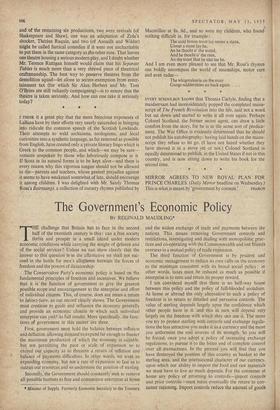I THINK it a great pity that the more ferocious
exponents of Lallans have by their efforts very nearly succeeded in bringing into ridicule the common speech of the Scottish Lowlands. Their attempts to weld archaisms, neologisms, and local curiosities into a synthetic language, as far removed as possible from English, have created only a private literary lingo which is Greek to the common people, and which—we may be sure— remains unspoken by those who laboriously compose in it. If Scots in its natural forms is to be kept alive—and there is every reason why this vigorous tongue should not be allowed to die—parents and teachers, whose genteel prejudice against it seems to have weakened somewhat of late, should encourage it. among children. I was delighted with Mr. Sandy Thomas Ross's Bairnsangs, a collection of nursery rhymes published by Macmillan at 8s. 6d., and so were my children, who found nothing difficult in, for example : The auld broun troot lay unner a stane,
Unner a stane lay he, An he thocht o' the wund, And he thocht o' the rain, An the troot that he uist tae be.
And I am even more pleased to see that Mr. Ross's rhymes can boldly encompass the world of steamships, motor cars and even radar—
The whigmaleerie on the muir Gangs widdershins an back again. . . .
, *


































 Previous page
Previous page